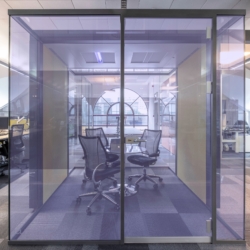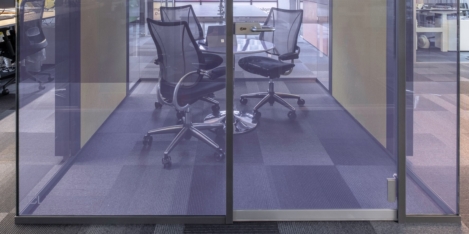To provide the best experiences, we use technologies like cookies to store and/or access device information. Consenting to these technologies will allow us to process data such as browsing behaviour or unique IDs on this site. Not consenting or withdrawing consent, may adversely affect certain features and functions.
The technical storage or access is strictly necessary for the legitimate purpose of enabling the use of a specific service explicitly requested by the subscriber or user, or for the sole purpose of carrying out the transmission of a communication over an electronic communications network.
The technical storage or access is necessary for the legitimate purpose of storing preferences that are not requested by the subscriber or user.
The technical storage or access that is used exclusively for statistical purposes.
The technical storage or access that is used exclusively for anonymous statistical purposes. Without a subpoena, voluntary compliance on the part of your Internet Service Provider, or additional records from a third party, information stored or retrieved for this purpose alone cannot usually be used to identify you.
The technical storage or access is required to create user profiles to send advertising, or to track the user on a website or across several websites for similar marketing purposes.
 The IRYS pod, a unique modular concept, remains at the forefront of innovation and design since its launch in 2016. As we face new challenges in the workplace, IRYS has been reconfigured to incorporate the latest generation of UV-C lighting to ensure the space is rigorously sanitised between meetings to maintain the highest levels of hygiene, crucially preventing the spread of viruses. (more…)
The IRYS pod, a unique modular concept, remains at the forefront of innovation and design since its launch in 2016. As we face new challenges in the workplace, IRYS has been reconfigured to incorporate the latest generation of UV-C lighting to ensure the space is rigorously sanitised between meetings to maintain the highest levels of hygiene, crucially preventing the spread of viruses. (more…)









 Flexible working arrangements are those which ‘allow employees to vary the amount, timing or location of their work’ and may include part-time working, mobile/home working, compressed hours or job-sharing – among others. Before the lockdown, according to the Chartered Institute of Personnel Development (CIPD), more than half of all employees in the UK used at least one form of flexible working, while a study by Gallup in the US suggests as many as 43 percent of employees already worked flexibly. The practice has been found to have positive effects on job satisfaction, employee commitment, reducing work-family conflict – and for many is now an essential component of modern working life.
Flexible working arrangements are those which ‘allow employees to vary the amount, timing or location of their work’ and may include part-time working, mobile/home working, compressed hours or job-sharing – among others. Before the lockdown, according to the Chartered Institute of Personnel Development (CIPD), more than half of all employees in the UK used at least one form of flexible working, while a study by Gallup in the US suggests as many as 43 percent of employees already worked flexibly. The practice has been found to have positive effects on job satisfaction, employee commitment, reducing work-family conflict – and for many is now an essential component of modern working life. 





















July 2, 2020
Leaders need to develop a high care quotient for the new challenges they face
by Chris Parke • Comment, Wellbeing, Working lives